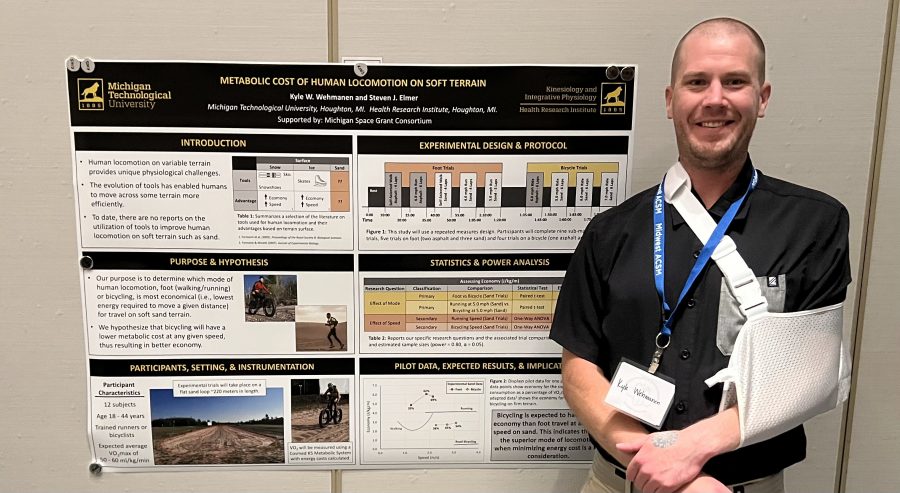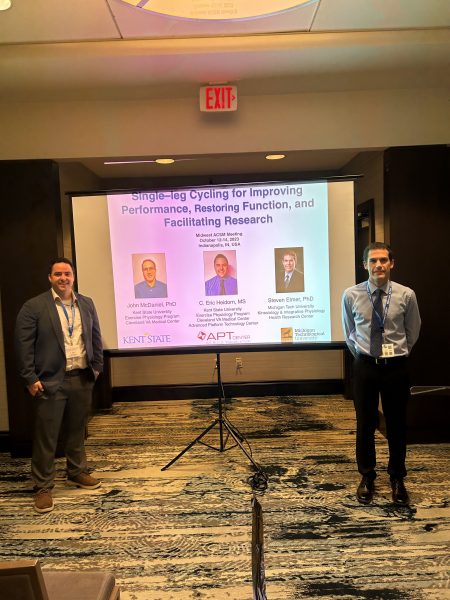Kyle Wehmanen and Dr. Steven Elmer from the Department of Kinesiology and Integrative Physiology traveled to Indianapolis, Indiana for the Midwest American College of Sports Medicine (ACSM) Annual Conference held on October 12-14, 2023. The conference brought together over 400 students, faculty, and professionals focused on kinesiology and sports medicine from across the Midwest states, including Michigan, Ohio, Indiana, Illinois, and Wisconsin.
This year was the 50th Midwest ACSM Annual Conference, which included a keynote presentation on “The Learning Connection: how physical activity, nutrition, free play and nurturing grow a healthy kid” by Anastasia Fischer, MD from Nationwide Children’s Hospital and The Ohio State University College. There were also 18 faculty and professional-led symposia, over 100 student oral and poster presentations, professional development sessions, and networking opportunities. To celebrate the Midwest chapter’s 50th anniversary, there was a historical presentation that highlighted how the chapter was started and how it has grown over the years to become what it is today.
Kyle Wehmanen, a second-year PhD student, presented a poster highlighting his research conducted in the Exercise Physiology Laboratory titled “Metabolic Cost of Human Locomotion on Soft Terrain.”
“Attending and presenting the MWACSM conference is a highlight for me every year. It always provides an inviting environment to share your research while gaining valuable feedback. It also provides a great opportunity to meet new like-minded individuals and have personal conversations with esteemed researchers in your areas of interest,” said Wehmanen.
Dr. Elmer presented as part of symposium that focused on “Single-Leg Cycling for Improving Performance, Restoring Function, and Facilitating Research” on day one of the conference and on “Science Communication and Advocacy: Current Topics and Integration with Your Career” on day two. The questions and feedback that Wehmanen and Elmer received will strengthen their projects and move their work forward. Overall, it was an excellent conference and professional development opportunity. A special thank you to the Michigan Space Grant Consortium and American Physiological Society for supporting the research and scholarly work that was presented by Wehmanen and Elmer. Also, thank you to members of the Exercise Physiology Laboratory and the Department of Kinesiology and Integrative Physiology for their continued support.

